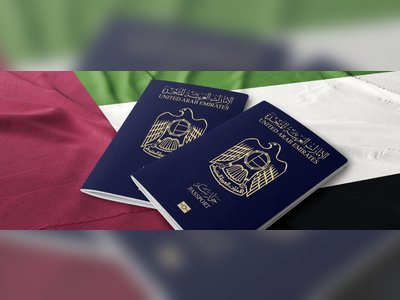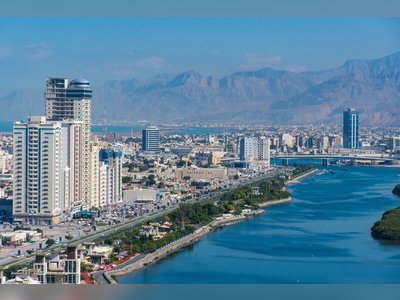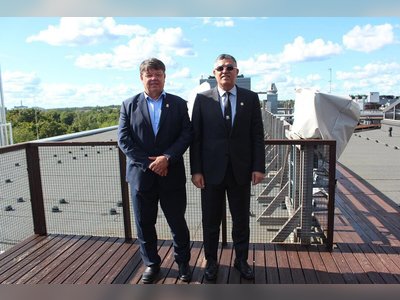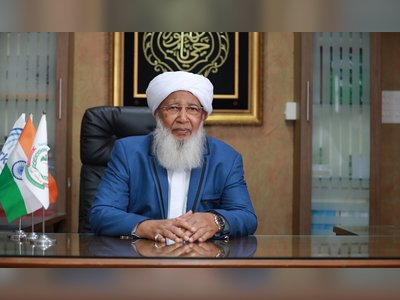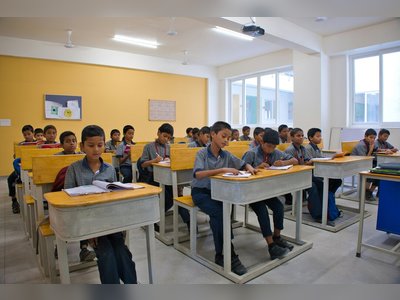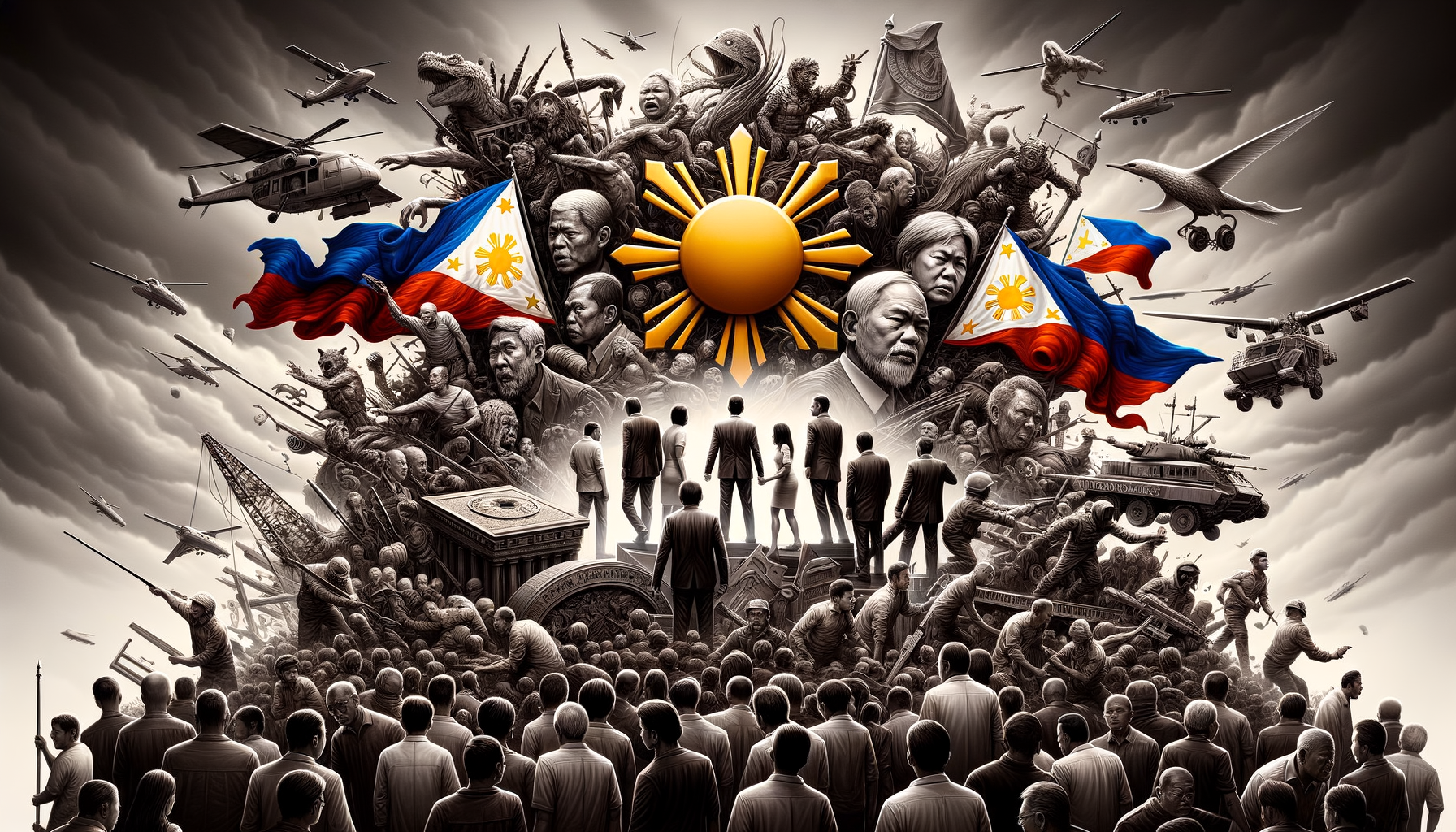
Political Tensions Escalate in the Philippines Between Marcos and Duterte Dynasties
Marcos Jr. reshuffles the National Security Council, sidelining Duterte allies amidst rising geopolitical stakes.
In the intricate political landscape of the Philippines, a new chapter of tension unfolds as rifts emerge between two of the country's most influential political families: the Marcos and Duterte dynasties.
The discord, set against a backdrop of shifting international alliances and internal power struggles, signifies a pivotal moment in Filipino politics.
The historical context of this rift dates back to the downfall of Ferdinand Marcos Sr.'s authoritarian regime, toppled by a 'People Power' revolution in 1986. Since then, the presidential seat of the Philippines has witnessed varied leadership styles, from strongmen to more subdued figures, and even leaders ousted by judicial rulings.
Fast forward to 2016, the controversial Rodrigo Duterte rose to power, noted for his hard-line stance on crime, encapsulated by extrajudicial killings against criminals and drug mafias during his tenure from 2016 to 2022.
Unable to seek a third term, Duterte positioned his daughter, Sara Duterte, to run alongside Ferdinand 'Bongbong' Marcos Jr., son of the late dictator, as vice-presidential candidate for the 2022 elections.
Their alliance secured a comprehensive victory with a 56% majority, with both collaborating in governance, while Duterte Sr. retained influence through his National Security Council (NSC) membership.
However, geopolitical currents and internal dynamics appear to have frayed this alliance.
In late 2024, Marcos Jr. executed a surprising administrative move, issuing an executive order that dismissed Vice President Sara Duterte, her father, and their affiliates from the NSC.
Concurrently, the President invited allies from the Congress to fill the NSC, led notably by his cousin, Martin Romualdez, speaker of the House.
The official rationale cited a need for a robust, adaptable national security apparatus in the face of local and global challenges.
Political analysts suggest that underlying discord had been simmering.
Tension between Marcos Jr. and the Dutertes became public when Sara Duterte resigned June 2024 as Secretary of Education, while retaining her vice-presidential role.
The situation intensified with Sara Duterte's dramatic public threats, reportedly hiring an assassin for Marcos Jr. and his spouse, prompting government intervention for potential national security threats.
Rodrigo Duterte's reaction was swift and severe, expressing regret over his political alliance with Marcos and describing the current president in disparaging terms.
He went as far as to incite public and military action reminiscent of the 1986 revolution against Marcos Sr.
Strategic divergence on foreign policy, particularly concerning China, is speculated to be a significant factor in this fallout.
The Dutertes are perceived as advocating closer ties with Beijing, raising concerns about potential security breaches should they remain in the NSC.
In contrast, President Marcos Jr. appears cautious, potentially wary of disrupting relations with the United States under President Donald Trump's administration.
Secretary of State Marco Rubio’s statement hinting at the Philippines’ central role in American strategies to counter China, particularly amid tensions over Taiwan, might have influenced Marcos’ decisive exclusion of the Duterte camp.
Notably, prior decisions highlighting this shift include Marcos Jr.'s authorization of expanded U.S. military access to northern Philippines military bases near Taiwan.
As these political machinations continue to unfold, the Philippines finds itself at a critical intersection, with domestic and foreign policy implications tied intricately to the power play between two formidable political families.
The discord, set against a backdrop of shifting international alliances and internal power struggles, signifies a pivotal moment in Filipino politics.
The historical context of this rift dates back to the downfall of Ferdinand Marcos Sr.'s authoritarian regime, toppled by a 'People Power' revolution in 1986. Since then, the presidential seat of the Philippines has witnessed varied leadership styles, from strongmen to more subdued figures, and even leaders ousted by judicial rulings.
Fast forward to 2016, the controversial Rodrigo Duterte rose to power, noted for his hard-line stance on crime, encapsulated by extrajudicial killings against criminals and drug mafias during his tenure from 2016 to 2022.
Unable to seek a third term, Duterte positioned his daughter, Sara Duterte, to run alongside Ferdinand 'Bongbong' Marcos Jr., son of the late dictator, as vice-presidential candidate for the 2022 elections.
Their alliance secured a comprehensive victory with a 56% majority, with both collaborating in governance, while Duterte Sr. retained influence through his National Security Council (NSC) membership.
However, geopolitical currents and internal dynamics appear to have frayed this alliance.
In late 2024, Marcos Jr. executed a surprising administrative move, issuing an executive order that dismissed Vice President Sara Duterte, her father, and their affiliates from the NSC.
Concurrently, the President invited allies from the Congress to fill the NSC, led notably by his cousin, Martin Romualdez, speaker of the House.
The official rationale cited a need for a robust, adaptable national security apparatus in the face of local and global challenges.
Political analysts suggest that underlying discord had been simmering.
Tension between Marcos Jr. and the Dutertes became public when Sara Duterte resigned June 2024 as Secretary of Education, while retaining her vice-presidential role.
The situation intensified with Sara Duterte's dramatic public threats, reportedly hiring an assassin for Marcos Jr. and his spouse, prompting government intervention for potential national security threats.
Rodrigo Duterte's reaction was swift and severe, expressing regret over his political alliance with Marcos and describing the current president in disparaging terms.
He went as far as to incite public and military action reminiscent of the 1986 revolution against Marcos Sr.
Strategic divergence on foreign policy, particularly concerning China, is speculated to be a significant factor in this fallout.
The Dutertes are perceived as advocating closer ties with Beijing, raising concerns about potential security breaches should they remain in the NSC.
In contrast, President Marcos Jr. appears cautious, potentially wary of disrupting relations with the United States under President Donald Trump's administration.
Secretary of State Marco Rubio’s statement hinting at the Philippines’ central role in American strategies to counter China, particularly amid tensions over Taiwan, might have influenced Marcos’ decisive exclusion of the Duterte camp.
Notably, prior decisions highlighting this shift include Marcos Jr.'s authorization of expanded U.S. military access to northern Philippines military bases near Taiwan.
As these political machinations continue to unfold, the Philippines finds itself at a critical intersection, with domestic and foreign policy implications tied intricately to the power play between two formidable political families.

